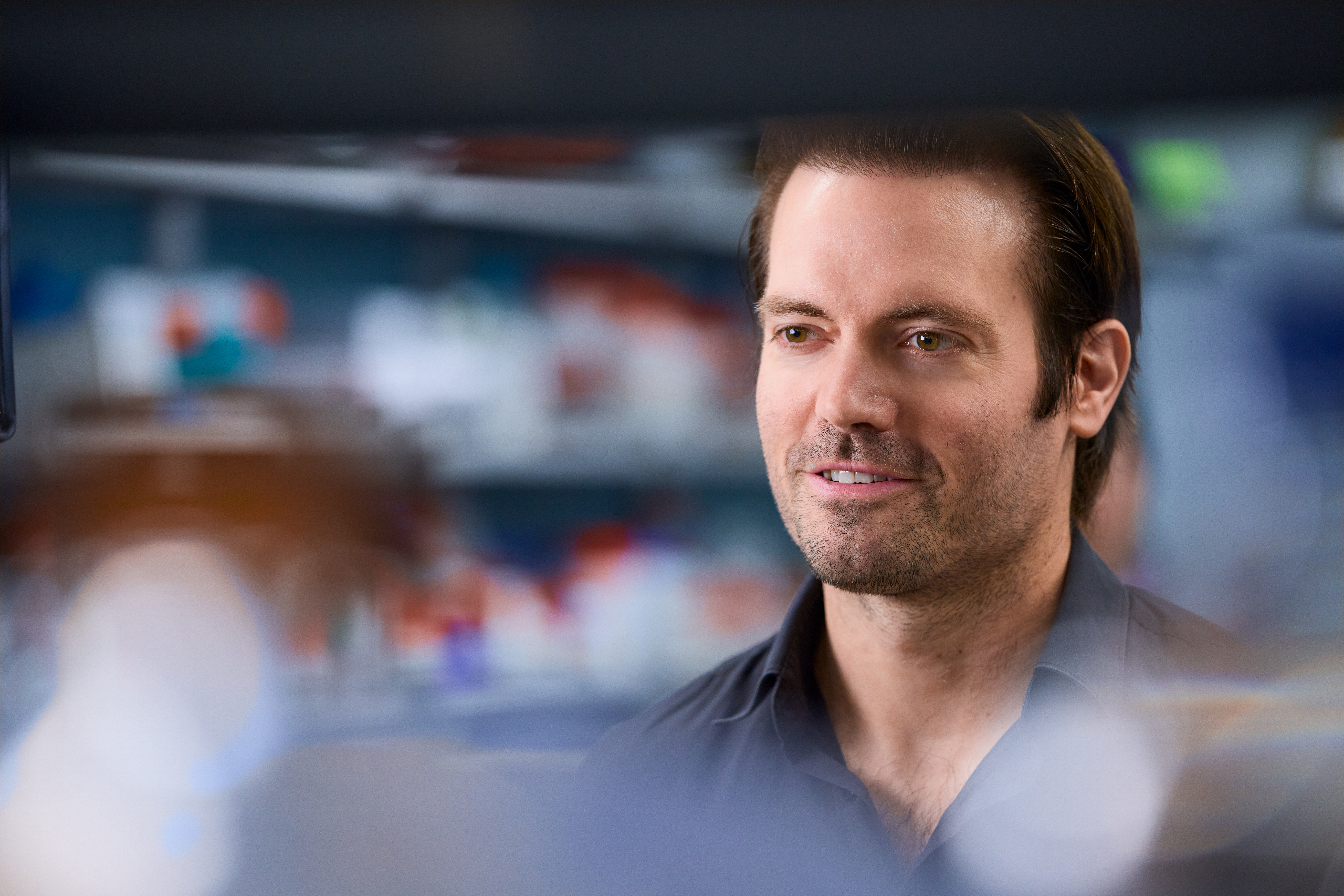
By Kat Procyk
Photography by Joshua Franzos
Hansruedi Mathys, assistant professor of neurobiology, School of Medicine, views the human brain as the world’s most sophisticated computer that helps define our individuality.
Philosophy aside, Mathys understands that even the body’s most complex organ is vulnerable to disease and impairment due to aging. And yet, some brains remain unaffected.
"When you look at the brain, especially under electron microscopy, you really see its complexity,” Mathys said. “It’s not a simple machine. One image I often show captures just a tiny section of the human brain, and it’s densely packed with cells and trillions of connections. I've even heard there are more synapses in the brain than stars in the Milky Way galaxy."
On Friday, July 18, Mathys will present “Cognitive Resilience in Alzheimer’s Disease” as part of the 2025 Senior Vice Chancellor Research Seminar Series. (Join the lecture here.)
Mathys will present his lab’s research on the cellular and molecular differences between individuals who are cognitively resilient and those who are not in the context of Alzheimer’s disease, focusing on key pathological hallmarks such as amyloid plaques and neurofibrillary tangles.
Mathys’s lab uses a multidisciplinary approach, combining single-cell genomics, genome engineering, pooled genetic screens and computational analysis to dissect the inner workings of brain cells and their dysfunction in Alzheimer’s disease.
Earlier in his career, he came across a paper in Nature that found exposing animals to an enriched environment, like providing new toys or increased social interactions, could reverse cognitive decline. He wondered about this potential in humans and if the environment could help reverse the effects of aging, even for those who have a genetic predisposition for Alzheimer’s disease and dementia.
"Even someone genetically at risk may avoid dementia with a healthy lifestyle—good sleep, diet, exercise and social interaction, especially in old age,” Mathys said. “But no two people share the same mix of factors, which may explain why Alzheimer’s is so hard to understand—and why there may be multiple forms of the disease, each requiring a different approach to treatment."
As a researcher in basic science, Mathys recognizes that his work not only is an important first step in developing treatments for Alzheimer’s disease but also may lead to more answers that can help slow, modulate and improve the aging process in its entirety.
Aging is often viewed as an immutable natural process—much like gravity, a force beyond human control. However, according to Mathys, aging is fundamentally a biological process shaped by molecular and cellular mechanisms and therefore theoretically amenable to intervention.
“Age is the greatest risk factor for Alzheimer’s, so if we understand what drives healthy aging—why some people maintain sharp cognition while others don’t—we might uncover broader solutions,” Mathys said. “I often tell my students: There’s no law of nature that says we have to age. At least theoretically, I believe it’s possible to slow, stop, or even reverse certain aspects of the aging process. If we can promote healthier aging, we may drastically reduce Alzheimer’s. That’s the long-term vision for my lab—extending healthy life, not just treating disease."
